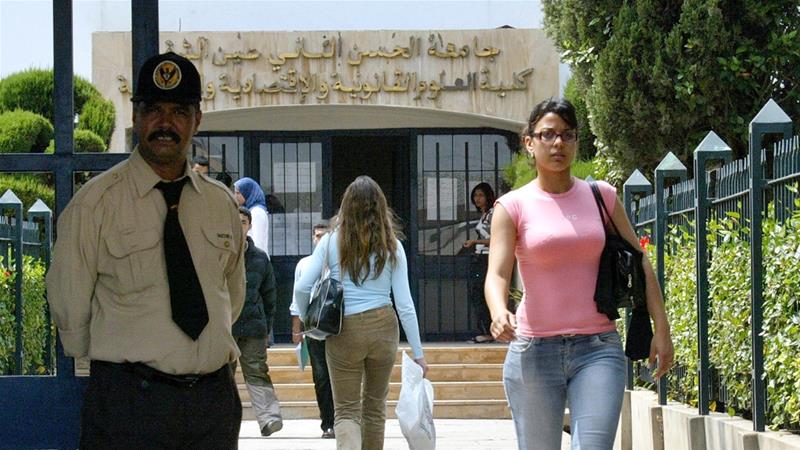MPs from ruling and opposition parties vow to vote against the bill that prejudices right of citizens to free education.
Members of the Moroccan parliament have been engaged in a heated debate for weeks over a government draft bill aimed at putting an end to free education in Morocco, a move that has triggered widespread anger among students, academics and education syndicates.
The bill proposes primary education to remain free for all Moroccans, but suggests fees on secondary and higher education for high-income families.
The proposed changes do not specify who will be eligible to pay, or the conditions under which families will be exempted from the new fees.
A number of MPs from both the ruling coalition and opposition parties have threatened to vote against the move, pointing out that the proposed law prejudices the right of Moroccans to free education.
The opponents of the bill also warn that the new legislation will lead to a serious decline in the quality of the country’s educational system.
Abdul Razzaq el-Idrissi, general secretary of the National Federation for Education, told Al Jazeera that the law may lead to “students leaving school because of the inability of their families to pay fees”.
Many Moroccan students complain that the cost of education is high enough as it is, and that the government should instead offer more scholarships to offset these costs.
“I study in a different city, far away from my home; not only must I pay for any academic-related expenses, but I must also pay for the bare necessities, including rent, food, transportation and so on,” Intissar Louah, a Moroccan university student told Al Jazeera.
Students like Louah, who travel to study in different cities, get stipends every three months to help with university expenses while they study.
She said many like her would not have been able to continue their education without this help.
“I can only imagine how difficult it would be for them to pursue their studies if [the authorities] were to impose tuition fees,” Louah added.
The Moroccan government has made reassurances that universities will continue to remain accessible to all citizens.
“The adoption of fees for registration in educational institutions concerns only affordable families, according to regulations that take into account the level of income and ability to pay,” Moroccan government spokesman, Mustapha el-Khalfi, told Al Jazeera.
However, many Moroccans are concerned that the government has not clarified who will be asked to contribute towards the fees.
“We do not know on what basis the government will decide who is eligible to pay the fees and who is not,” Mohamed Ben Lahcen, a teaching trainer, told Al Jazeera.
“What improves education is good management … not abundant amounts of money,” he added.
Source: Read Full Article
